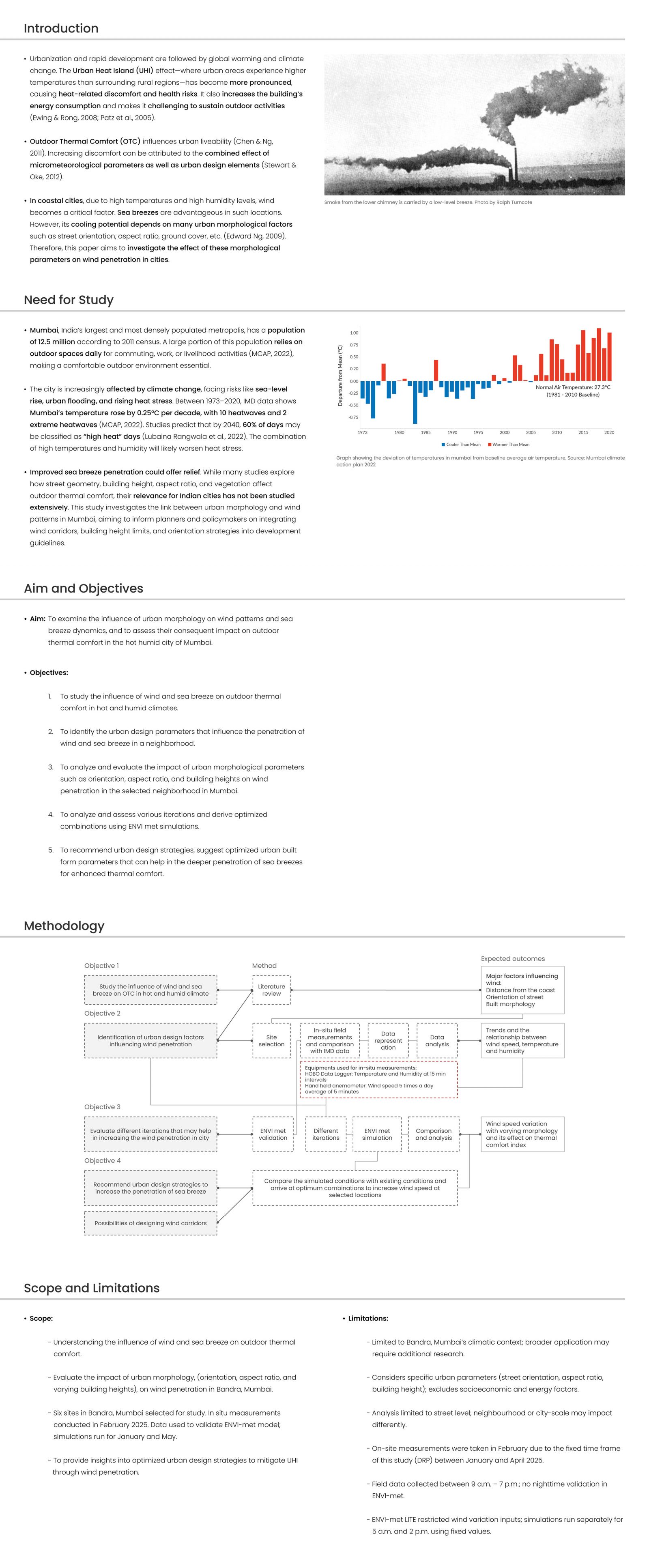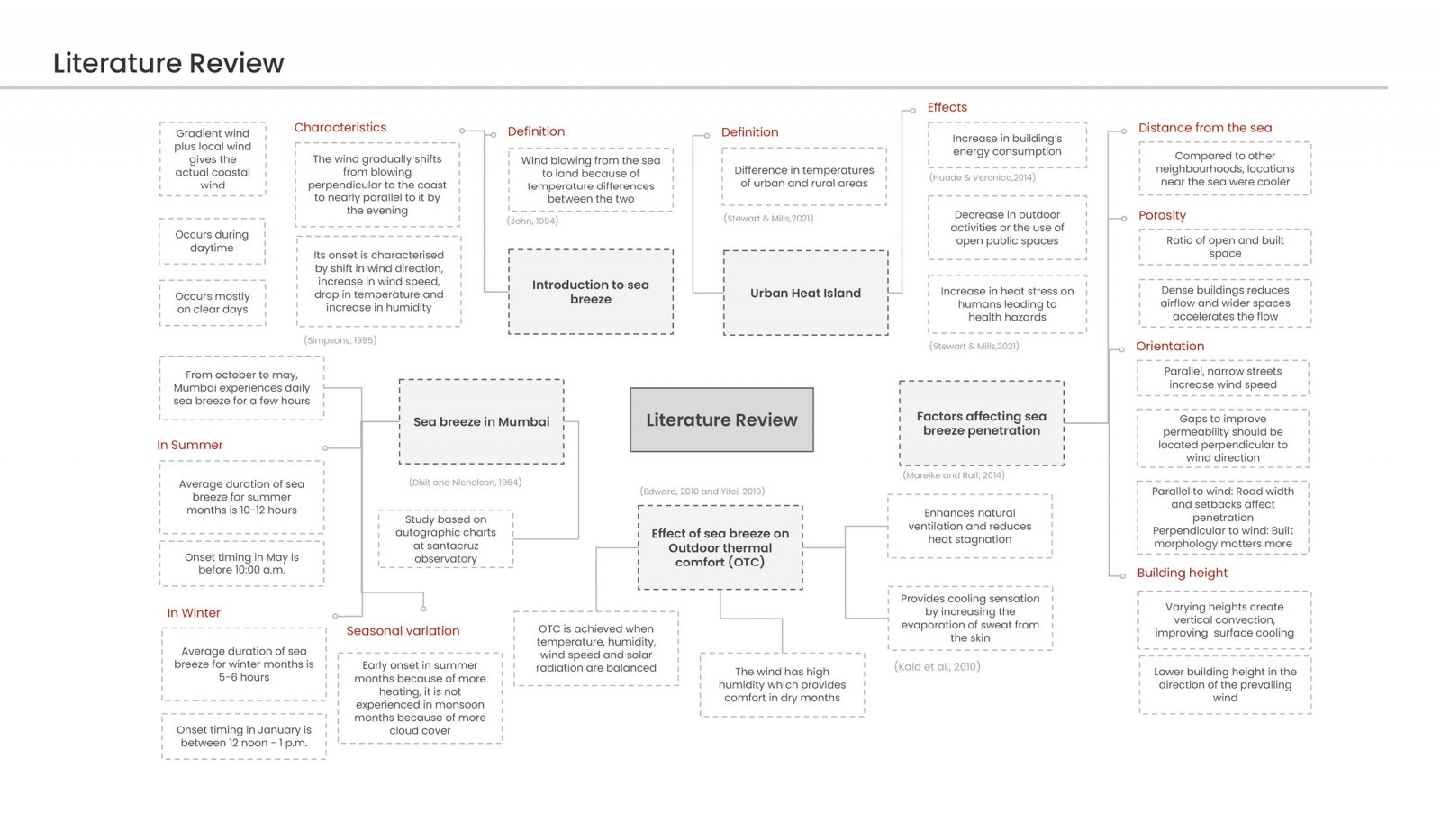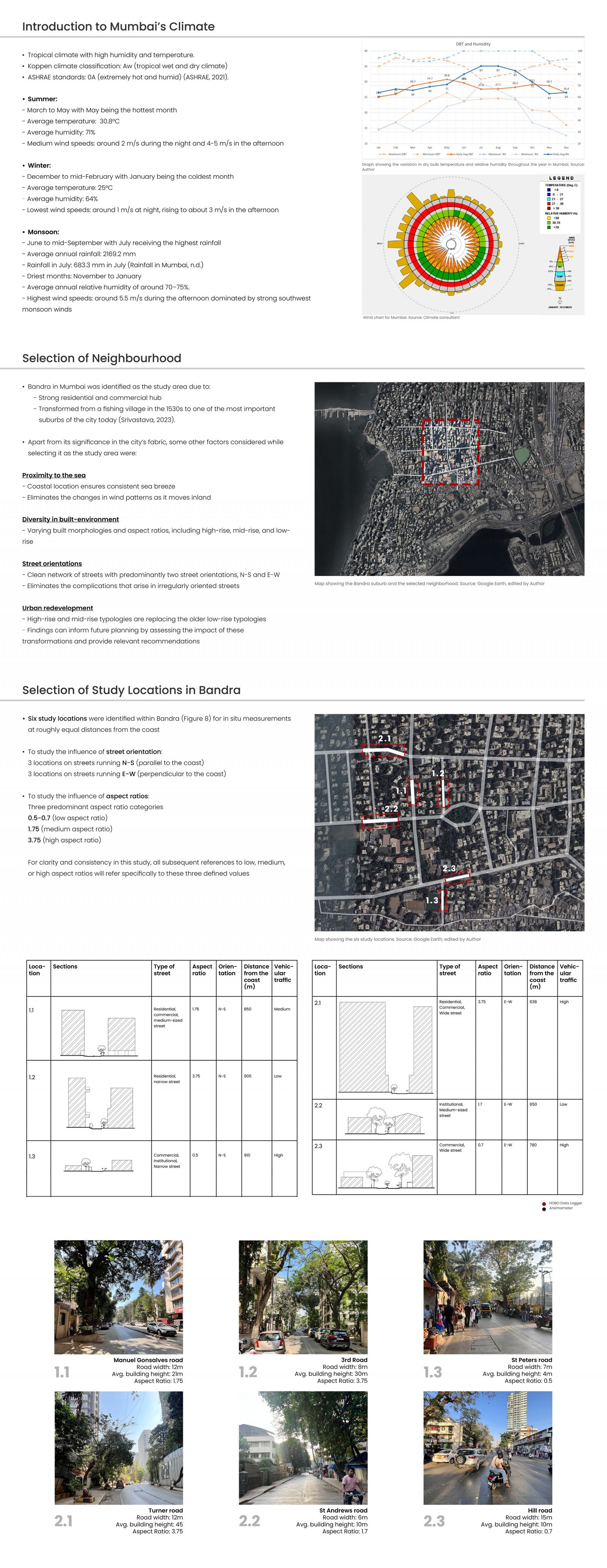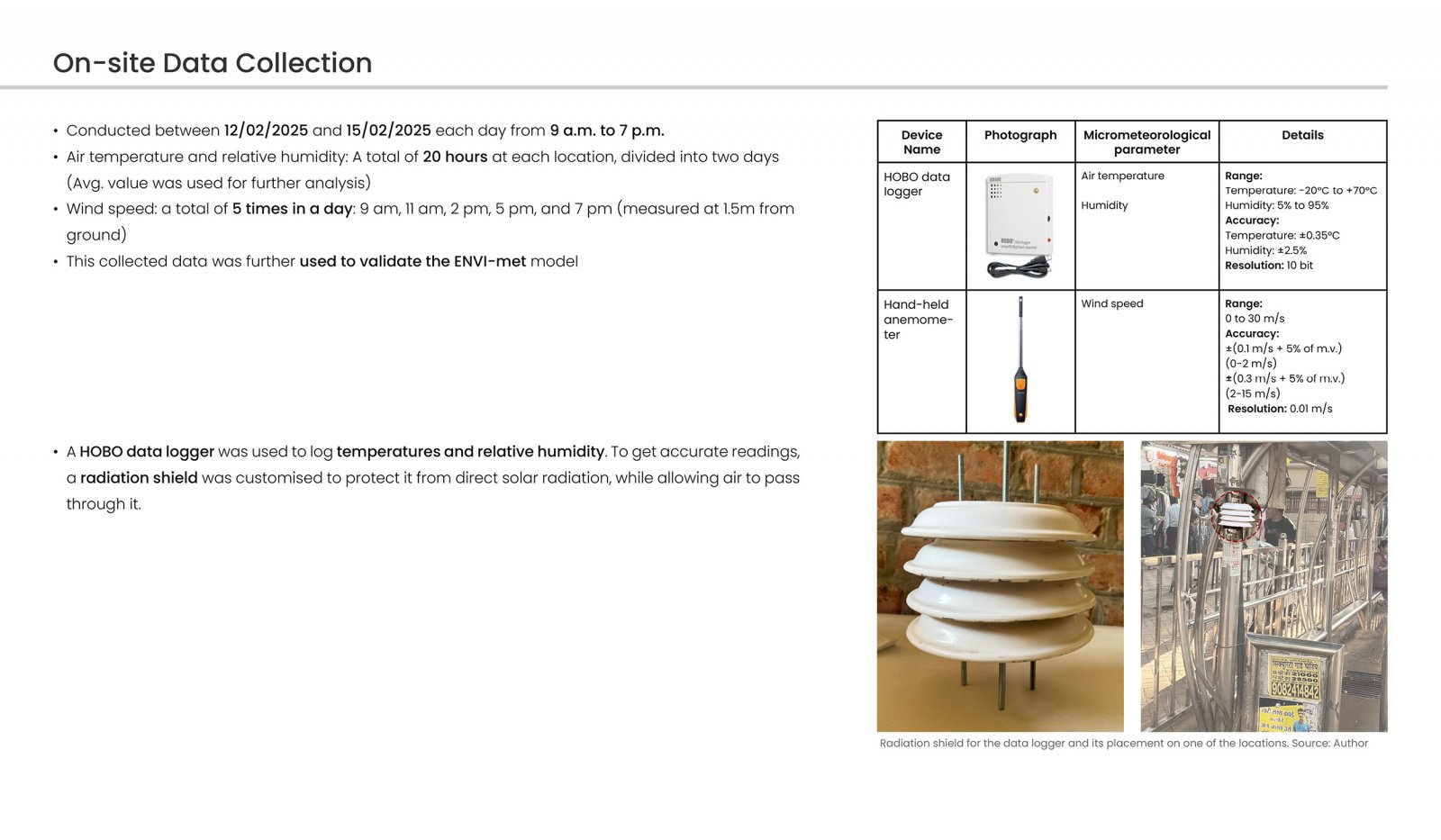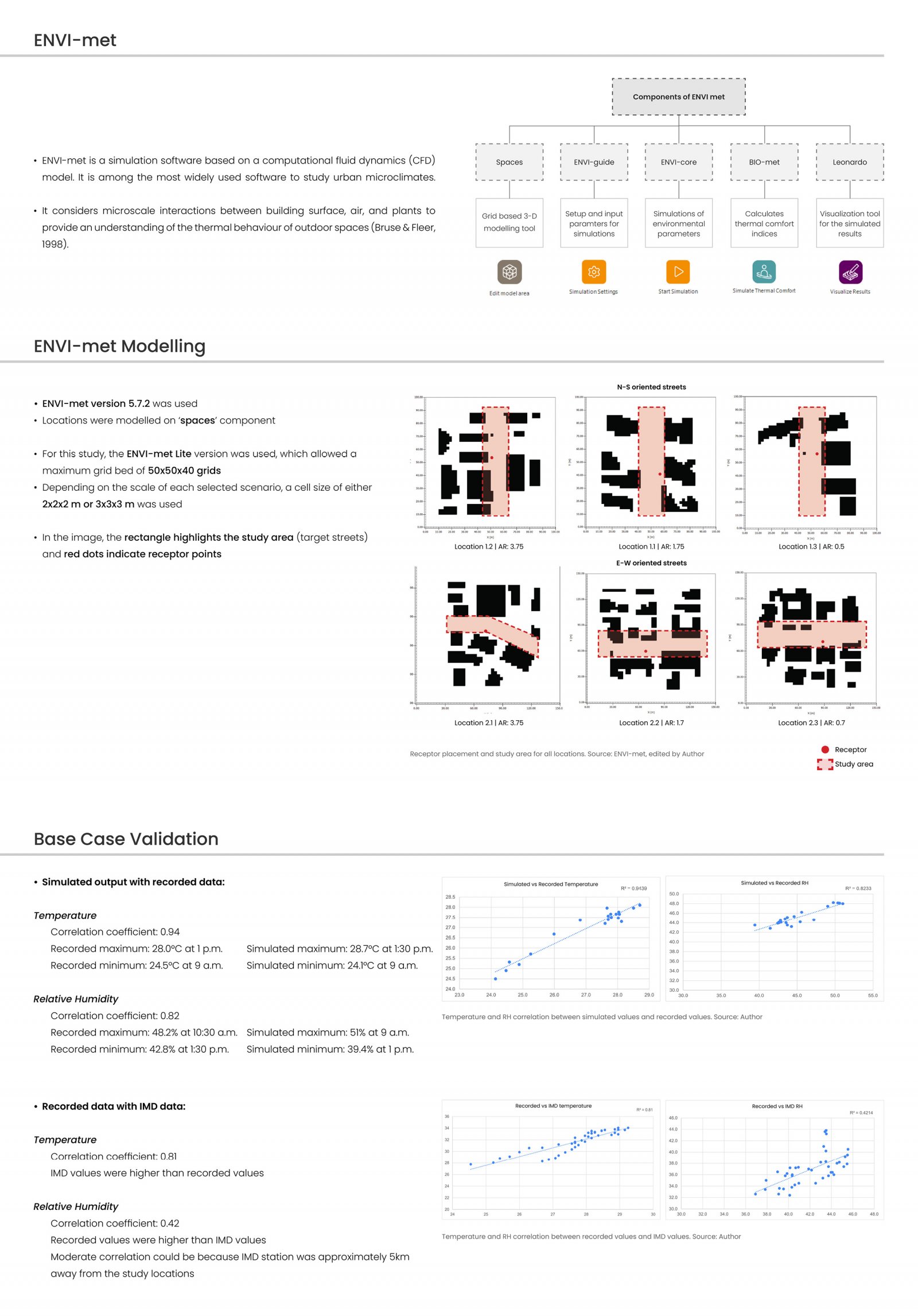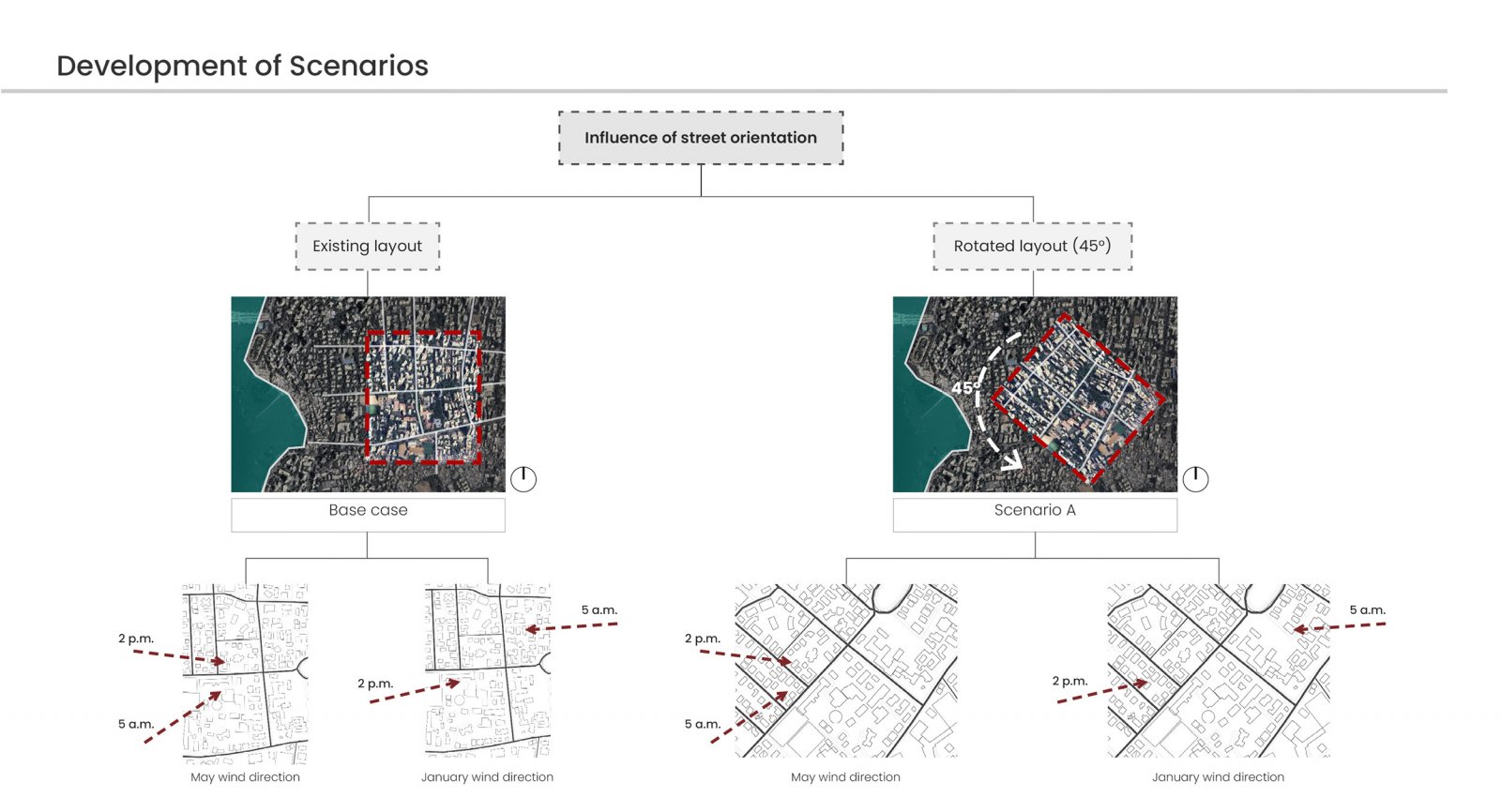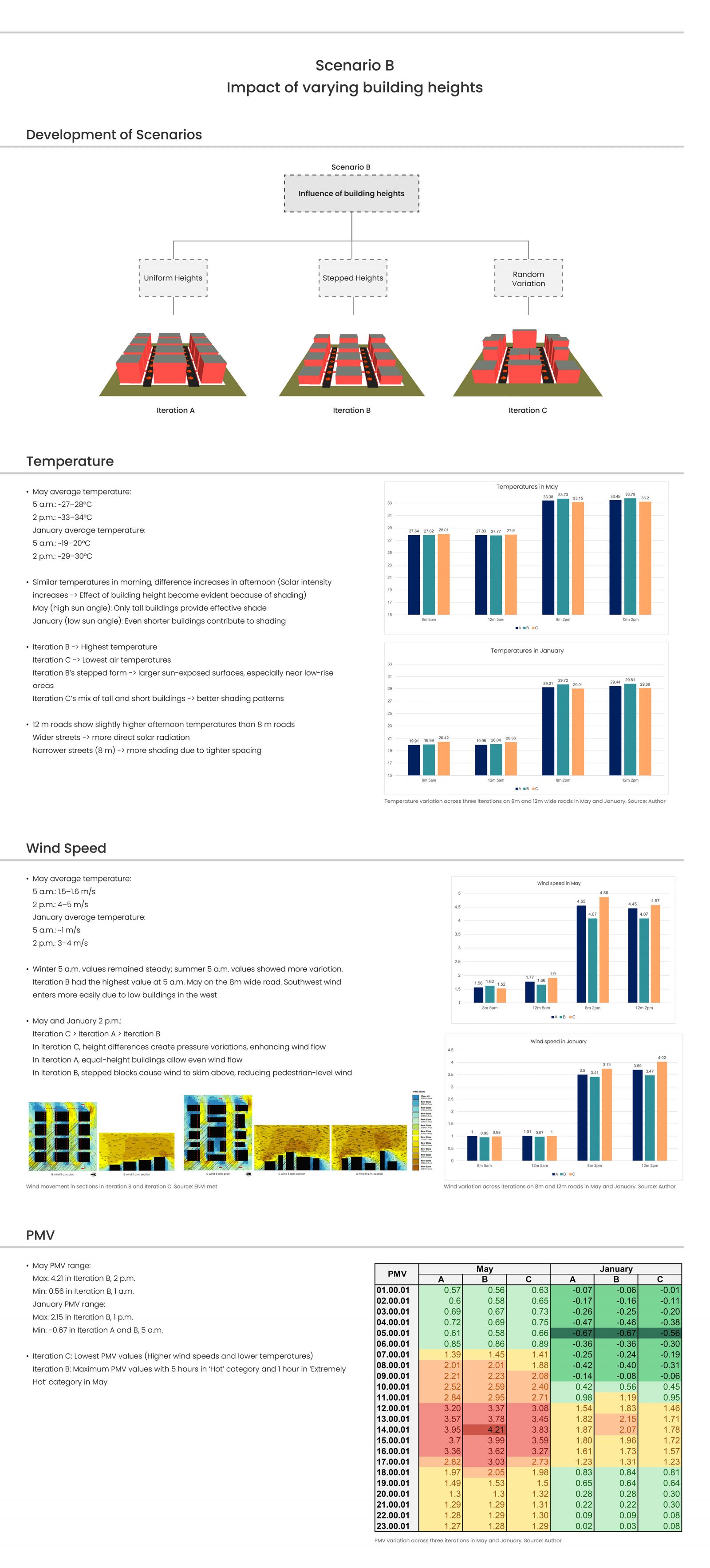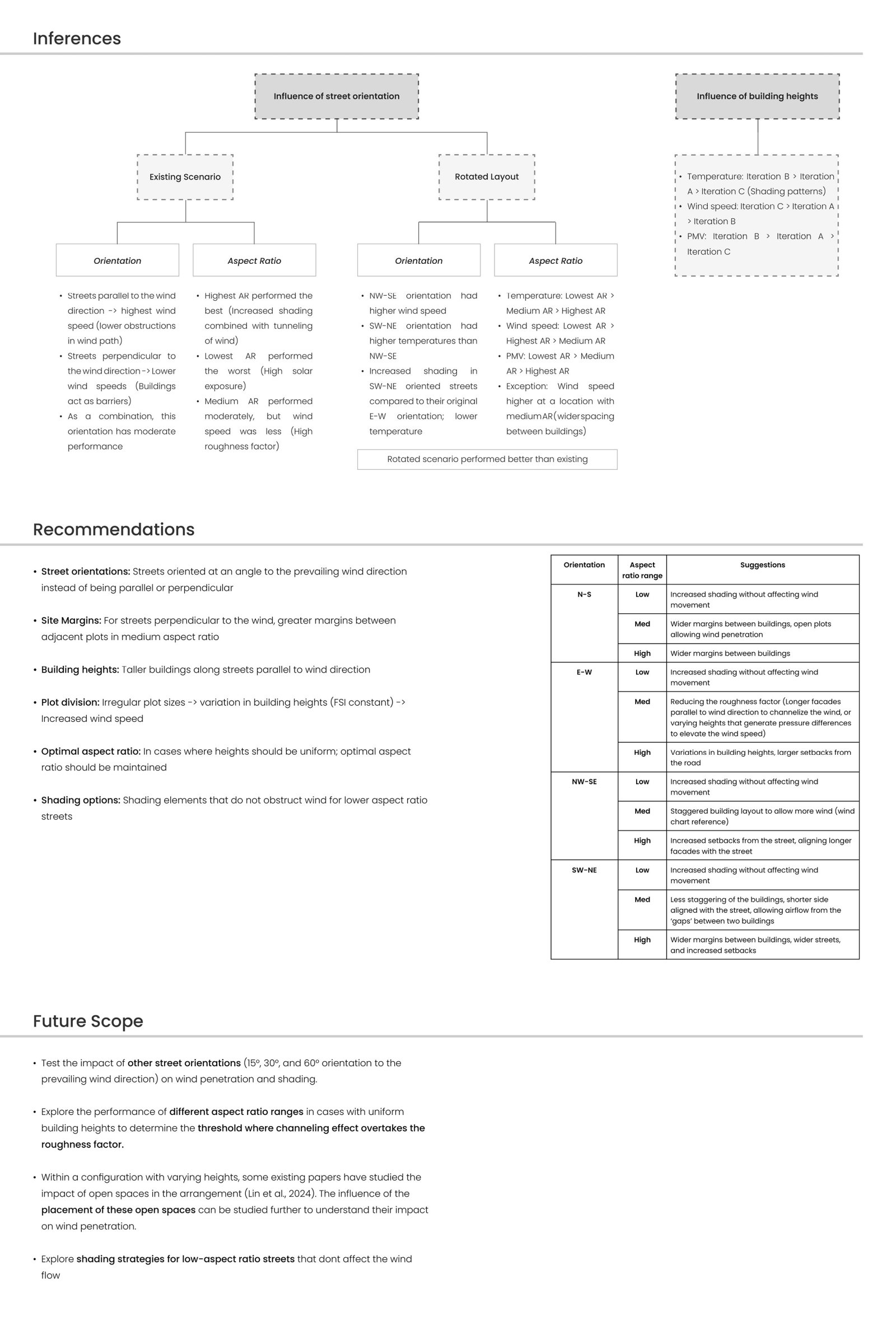Your browser is out-of-date!
For a richer surfing experience on our website, please update your browser. Update my browser now!
For a richer surfing experience on our website, please update your browser. Update my browser now!
In rapidly developing countries like India, urbanization is followed by environmental threats like climate change. Rising temperatures compromise outdoor thermal comfort in cities. The Urban Heat Island (UHI) effect worsens heat-related discomfort and increases energy use. Outdoor thermal comfort is influenced by temperature, humidity, wind speed, and urban design elements. In coastal cities, balancing these becomes crucial due to high humidity and heat. Wind plays a key role by dispersing heat and improving comfort. However, its effectiveness depends on morphological factors like street orientation and aspect ratio. This study investigates the impact of these factors on wind penetration in cities.
View Additional Work